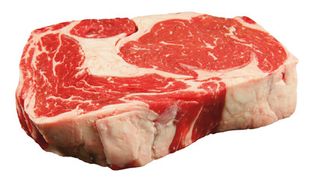
Welcome to another exciting Week in Science. The last seven days have been filled with wonder yet again, including the ability to think yourself warm, the emergence of a new supermaterial and incredible genetics work that could reveal the next blockbuster heart drug.
If that wasn't enough, one legendary hangover cure actually work. Perfect for a tomorrow morning pick-me-up.
'Old sober' actually works as advertised -- Lots of the so-called hangover 'cures' are utter rubbish, but there's a legendary cure from New Orleans, via Korea, that apparently actually works. New data, recently presented at a meeting of the American Chemical Society, shows that the constituents of old sober, also known as yaka mein, genuinely speed recovery from a hangover. The combination of sodium and potassium salts in the broth, as well as proteins and cysteine from eggs and meat, help replace those lost through excessive urination, while enhancing the removal of acetyldehyde - one of the key causes of a hangover. So next time you're feeling a tad rough the morning after, try a little yaka mein to get you through. [Eurekalert]
It's not the cholesterol that's killing you in red meat -- Bad news for red meat lovers (isn't it always?). Researchers have identified a link between carnitine, a chemical found in abundance in red meat, and an increased risk of heart disease. It's not the carnitine itself that's the problem; bacteria in our guts convert it into Trimethylamine N-oxide (TMAO), which is known to promote atherosclerosis, or the furring and thickening of the arteries. That's bad news for your heart and cardiac system, and means you should probably think about cutting down on your red meat intake. However, now that we've identified the bacteria that produce TMAO, there's a possibility we could develop drugs against them. Kill them off and we can eat all the red meat we like. [Nature Medicine]

Think yourself warm -- Ever been a bit cold and just wished you could turn up your internal thermostat? According to a new study of Tibetan nuns, that's actually possible. Through two techniques, a breathing practice called 'vase breath' which causes heat production, and the internal visualisation of flames near the spine, the Tibetans were actually able to increase their body temperatures up to around 38 degrees Celsius. It was also found that Westerners practicing the same techniques could increase their temperatures too, although by not nearly as much. Researchers think that the practice might hold beneficial effects, not only for keeping warm, but for boosting the immune system too. [PLoS One]
Move over graphene, there's a new supermaterial in town -- Graphene's been held as the wonder material to take us to new technological levels. But it's no longer the newest supermaterial on the block. Meet nanocellulose -- it's simply the cellulose you might call fibre in your diet, but like the basic carbon structure of graphene, when shrunken down to the nano scale and structured in a specific way, it takes on a whole different set of incredible properties. Produced by algae, eating carbon dioxide while they're at it, and made into long polymer chains, it is one of the strongest materials known to man, can conduct electricity, and is super light. From ultra-strong body armour, to new bendable displays, flexible batteries, and even a new fuel, the possibilities are endless. [Eureka Alert]
One woman's rare genetic mutation inspires the next blockbuster heart drugs -- Since the sequencing of the human genome, biologists the world over have been scouring our genetic code for drug targets. Now a woman with a very rare genetic mutation might hold the key to controlling cholesterol levels and preventing heart disease. Her mutations take out a gene called PCSK9, which was thought to be crucial in controlling LDL cholesterol.
Get daily insight, inspiration and deals in your inbox
Get the hottest deals available in your inbox plus news, reviews, opinion, analysis and more from the TechRadar team.
